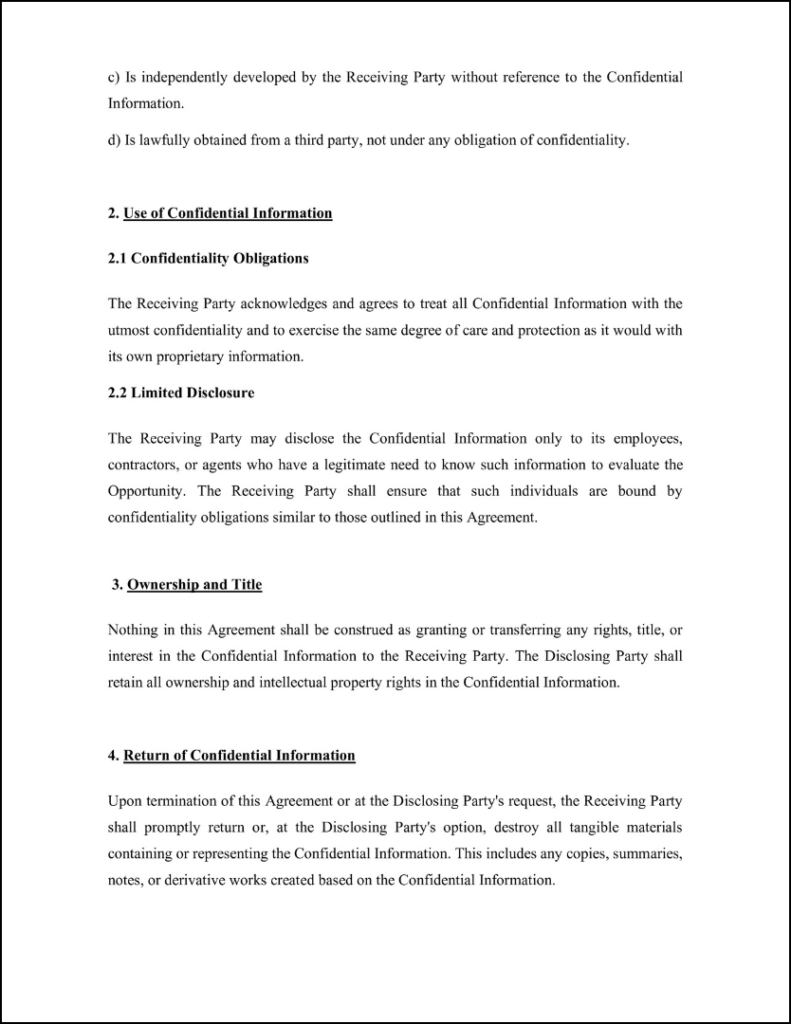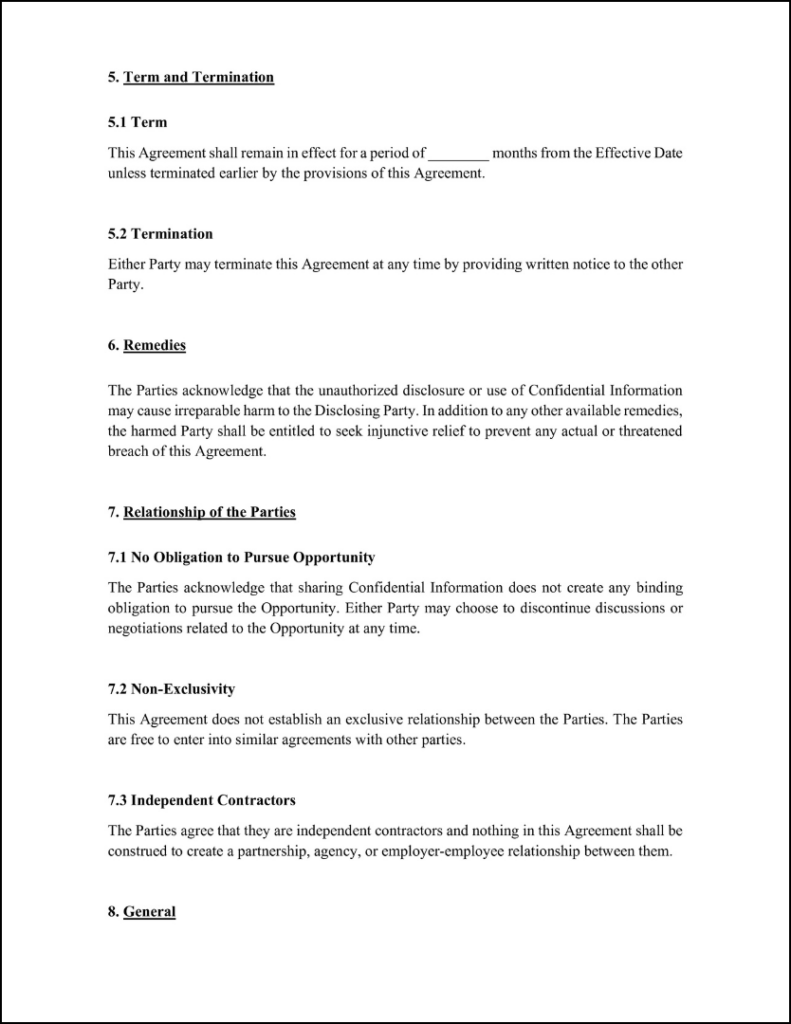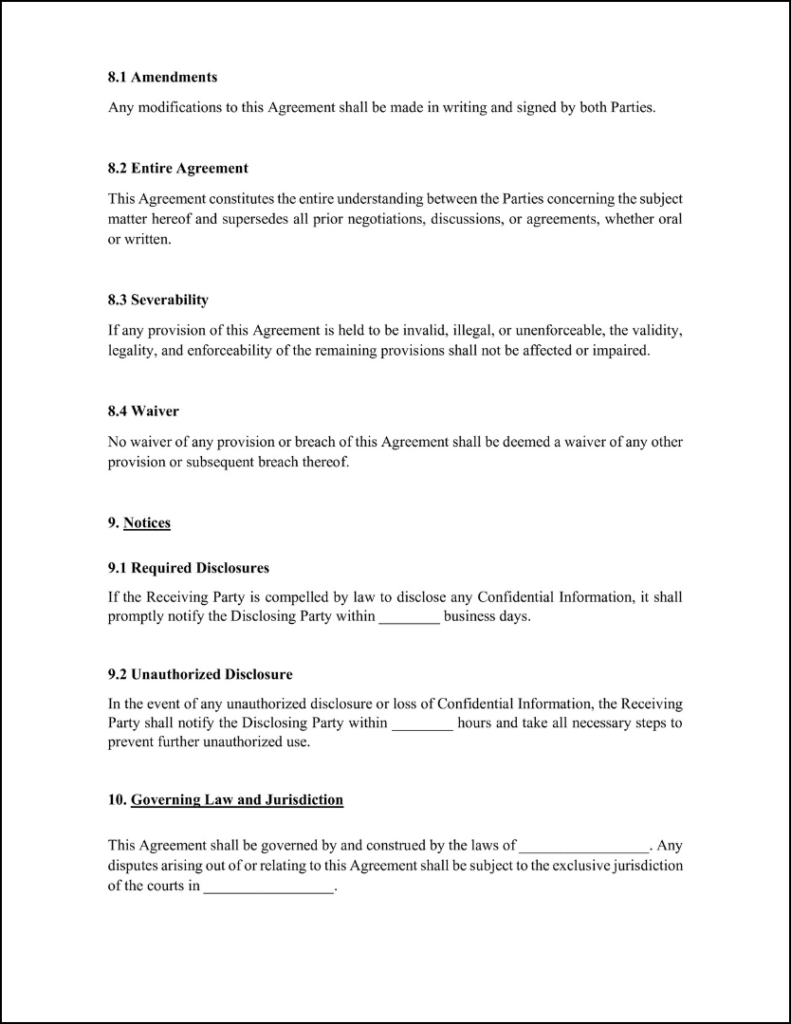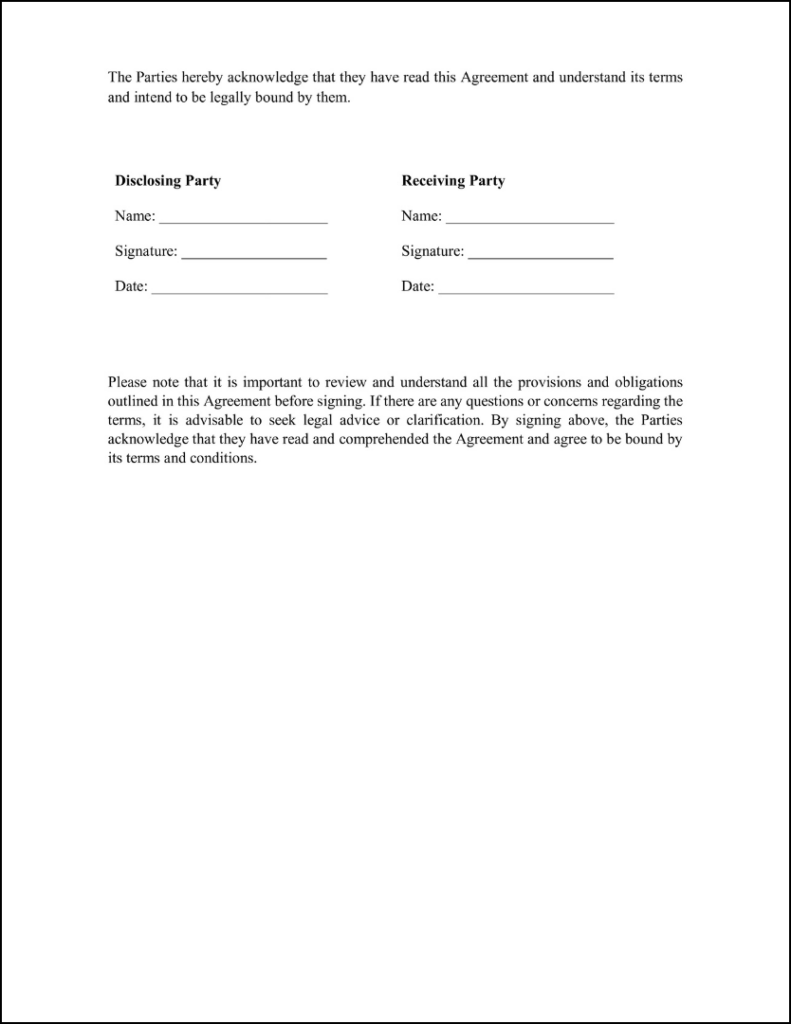Non-Disclosure Agreement Template
We understand the significance of protecting sensitive information in today’s fast-paced and competitive world. As part of our commitment to supporting businesses and individuals in safeguarding their confidential data, we are pleased to offer you a free Non-Disclosure agreement template. This legally binding agreement will help you establish trust and maintain confidentiality when sharing valuable information with others.
You’ve poured your heart and soul into a groundbreaking idea, a cutting-edge invention, or a proprietary business process. Now, you’re ready to share it with potential partners, investors, or collaborators. But wait! Before you reveal your secrets to the world, ensure your ideas remain exclusively yours with our free Non-Disclosure Agreement template. Download it now to protect your intellectual property and gain peace of mind!
What is a Non-Disclosure Agreement?
A Non-Disclosure Agreement, commonly known as an NDA, is a legally binding agreement between two or more parties that outlines the confidential information they intend to share and the terms under which it should be treated. This Agreement ensures that the information shared remains protected from unauthorized disclosure or use by the receiving party, thereby safeguarding the interests of the disclosing party.
The primary purpose of an NDA is to establish trust and a confidential relationship between the parties involved. It is a crucial tool for businesses, startups, entrepreneurs, and individuals when entering into discussions or collaborations where sensitive data may be exchanged.
Non-Disclosure Agreement typically Covers:
- Protection of sensitive information
- Legal enforceability
- Trust-building
- Business Advantage
- Collaboration facilitator
Free Editable Non-Disclosure Agreement Sample
Access our free Non-Disclosure Agreement sample to safeguard your interests. Download now and take proactive steps toward a secure Non-Disclosure Contract at no cost.
Why is a Non-Disclosure Agreement Important?
When it comes to safeguarding sensitive information, a Non-Disclosure Agreement (NDA) becomes an essential tool for individuals and businesses alike. The NDA serves as a legal agreement designed to protect confidential data from unauthorized access, use, or disclosure. By establishing clear guidelines and expectations for both the disclosing and receiving parties, an NDA plays a vital role in preserving the integrity of valuable knowledge. Let’s explore some compelling reasons why having an NDA in place is of utmost importance:
1. Preserving Confidentiality
An NDA acts as a protective shield for your valuable information. By defining what constitutes confidential data and the obligations of the receiving party, prevents the unauthorized use or disclosure of your proprietary knowledge.
2. Securing Business Interests
In today’s fiercely competitive market, a company’s competitive advantage often lies in its unique know-how or trade secrets. An NDA helps maintain that competitive edge by ensuring your innovative concepts remain confidential.
3. Encouraging Collaboration
Many business partnerships and collaborations are built on trust. An NDA fosters that trust by assuring parties that their shared information will be kept in strict confidence, encouraging fruitful partnerships.
4. Legal Recourse
Should a breach of confidentiality occur, an NDA provides a legal basis for taking action against the responsible party. This contract offers recourse and remedies in case of any violations.
5. Protecting Intellectual Property
From innovative ideas and proprietary data to customer lists and financial information, an NDA shields your intellectual property from falling into the wrong hands, preventing potential harm or misuse.
5 Tips for Writing a Non-Disclosure Agreement
Crafting a well-written Non-Disclosure Agreement (NDA) is essential for safeguarding sensitive information and establishing a foundation of trust between parties. By following these five tips, you can create a robust NDA that protects your valuable data and mitigates potential risks.
1. Clear and Specific Language
Use precise and straightforward language in your NDA to leave no room for ambiguity or misinterpretation. Clearly define what information is confidential and what obligations the receiving party must uphold.
2. Scope and Duration
Determine the scope of confidentiality and the duration for which the agreement remains in effect. Specify any exceptions when the information ceases to be confidential.
3. Consult Legal Professionals
While our free template provides a great starting point, it’s essential to have your NDA reviewed by legal professionals to ensure it complies with specific laws and regulations in your jurisdiction.
4. Mutual or Unilateral NDA
Decide whether the NDA will be mutual (both parties disclose information) or unilateral (only one party discloses). Choose the option that aligns with the nature of your business arrangement.
5. Exclusions and Limitations
Clearly state any information that is not subject to confidentiality and outline the limitations of the NDA to balance the protection of information while allowing for necessary disclosures.
FAQs Related to Non-Disclosure Contract Templates
Non-Disclosure Agreement Sample Preview
Below is the downloadable sample of a Non-Disclosure Agreement:
Disclaimer: Please note that the samples provided here are intended to serve as a helpful resource and should not be considered legal advice. It is important to consult with a qualified attorney or legal professional to ensure that any modifications or usage of these templates align with the specific laws and regulations applicable to your jurisdiction and circumstances. BunnyDoc disclaims any liability or responsibility for the consequences arising from the use or customization of these templates. It is the responsibility of the users to review and adapt these templates to their specific needs, and to seek legal counsel for their particular circumstances.




